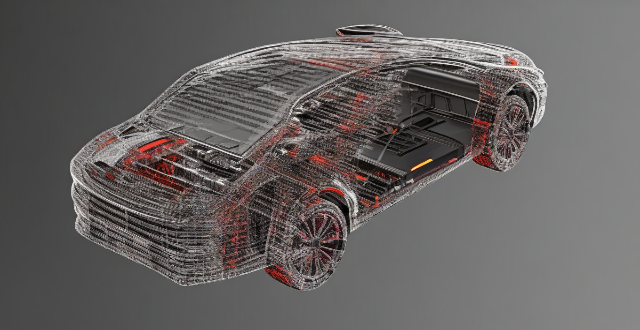A full service car maintenance includes engine diagnostics, fluid checks, filter replacements, tire care, brake system inspection, suspension and steering check, exhaust system evaluation, battery test, lights and electrical checks, vehicle inspection, cleaning, and maintenance. Regular comprehensive maintenance can extend a car's lifespan, improve performance, and ensure safety.

Full Service Car Maintenance: A Comprehensive Guide
Maintaining a car is crucial for its longevity, performance, and safety. A full service car maintenance encompasses a broad spectrum of checks and services designed to keep your vehicle running smoothly and efficiently. Here's a detailed breakdown of what you can expect from a comprehensive car maintenance service:
1. Engine Diagnostics & Tune-Up
- Computer Diagnostics: Technicians use advanced tools to scan the engine control unit (ECU) for any error codes or warnings.
- Tune-Up: This involves adjusting the engine to optimize performance and fuel efficiency, including checking and replacing spark plugs if necessary.
2. Fluid Checks & Replacements
- Oil Change: Old oil is drained and replaced with fresh oil, along with a new oil filter to ensure clean lubrication.
- Coolant System: The coolant level is checked and topped off or replaced to prevent overheating.
- Brake Fluid: Brake fluid levels are checked and replenished to ensure responsive braking.
- Power Steering Fluid: Levels are checked and adjusted to maintain smooth steering.
- Transmission Fluid: For automatic transmissions, the fluid is checked and replaced as needed.
3. Filter Replacements
- Air Filter: Clean air flow is essential for engine efficiency, so clogged air filters are replaced.
- Cabin Air Filter: This filter cleans the air entering the passenger compartment and is replaced to maintain air quality inside the vehicle.
- Fuel Filter: While not always included, some services may check and replace the fuel filter to ensure clean fuel delivery to the engine.
4. Tire Care
- Rotation: Tires are rotated to even out wear patterns and extend their lifespan.
- Balancing: Unbalanced tires can cause vibrations, so they are balanced to improve ride comfort and tire life.
- Pressure Check: Proper tire pressure is vital for safety, fuel economy, and even tire wear.
5. Brake System Inspection
- Brake Pads & Shoes: Worn brake pads or shoes are checked and replaced to maintain stopping power.
- Brake Discs/Drums: These components are inspected for wear and damage; excessive wear may require replacement.
6. Suspension & Steering
- Component Check: Various components like shocks, struts, ball joints, and tie rod ends are inspected for wear.
- Wheel Alignment: Misaligned wheels can cause uneven tire wear and poor handling, so alignment is checked and adjusted if necessary.
7. Exhaust System
- Emissions Testing: Some services include testing to ensure the vehicle meets emission standards.
- Exhaust Inspection: The exhaust system is visually inspected for leaks or damage that could affect performance or emissions.
8. Battery Test
- Charge Test: The battery's charge level is tested to ensure it can hold a sufficient charge.
- Connection Check: Corrosion or damage to battery connections is cleaned or repaired to maintain a reliable electrical system.
9. Lights & Electrical
- Bulb Check: All exterior and interior lights are checked for functionality; burned-out bulbs are replaced.
- Wiper Blades: Worn wiper blades are replaced to ensure clear vision during rain or snow.
10. Vehicle Inspection
- Visual Inspection: Technicians perform a thorough visual inspection of the vehicle, looking for signs of wear or damage that may need attention.
- Test Drive: The vehicle is taken on a test drive to identify any unusual noises or handling issues that may not be apparent when the vehicle is stationary.
11. Cleaning & Maintenance
- Windshield Washer Fluid: Top off the washer fluid reservoir to ensure clear vision when using wipers.
- Tire Dressing: Some services apply a protective coating to the tires to maintain their appearance.
Conclusion
A full service car maintenance is an extensive process designed to address various aspects of vehicle health. By regularly undergoing such maintenance, you can significantly extend the life of your car, improve its performance, and most importantly, ensure your safety on the road. It's an investment that pays off in the long run by reducing the likelihood of major repairs and unplanned downtime.